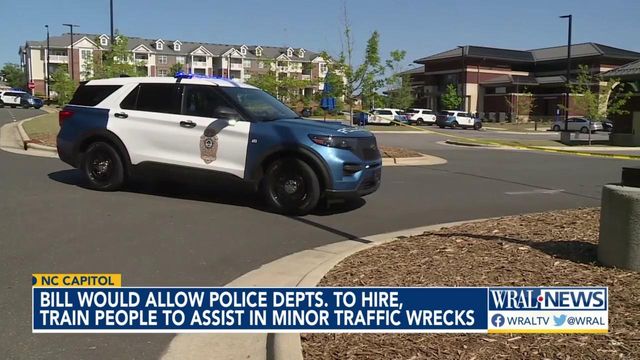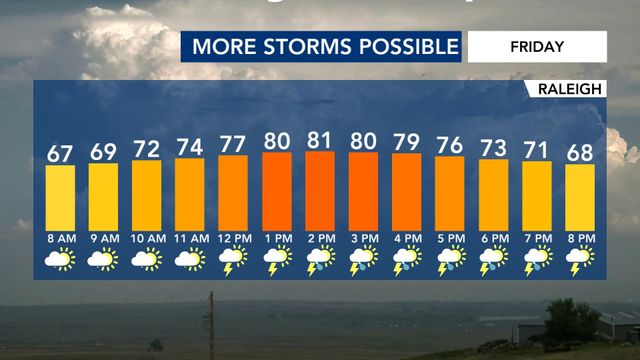Traffic crashes could soon be investigated by civilians in North Carolina
The next time you're involved in a fender bender, the person who shows up to investigate may not be a police officer. A proposal that's close to becoming law would allow cities across North Carolina to hire and train civilians to handle minor traffic accidents that don't involve an injury.
House Bill 140 passed the state Senate Thursday with unanimous support, and could be headed to the governor's desk next week after one final vote in the state House.
State Sen. Michael Lazzara R-Onslow, said it would help cities struggling with staffing shortages in their police departments. He said Fayetteville and Wilmington have used civilian traffic investigators for years without a problem, so they decided to expand that authority statewide.
"This is just a way that we can help cities and towns fill the gap and have availability for officers to respond to actual emergency calls, rather than take their time to be at a traffic accident that can normally take several hours to complete," Lazzara told WRAL News.
The bill would require investigators to go through a training program designed by the North Carolina Justice Academy, followed by at least four weeks out in the field with a police officer. They would wear a different uniform and would not carry a sidearm. Their vehicle lights wouldn't be blue.
Civilian investigators also wouldn't have the authority to write a citation or arrest anyone. An earlier version would have given them the authority to ticket a driver, but that was removed in the Senate, Lazzara said.
"They basically do the investigation, they file the reports, and they also have the ability to appear in court," Lazzara said. "If there’s an issue involving criminal activity, they just call for an officer and an officer will come and do their job."
The North Carolina Association of Police Chiefs supports the bill.
"It will take a tremendous workload off of our police officers," the group's president, Hendersonville Police Chief Blair Myhand, told WRAL News.
Myhand estimates it will save his small department about 1,000 officer-hours a year. It responds to about 1,600 traffic calls a year, he said.
"Probably 50% of those crashes in our case are, you know, what we kind of call in layman's terms 'parking lot crashes' - they're minor 1050s where no one's injured. And so, this is going to be a tremendous saving," Myhand said. "It's a lot of man hours that are involved or that will be saved, to allow police officers to get back into investigating crimes and responding to calls for service."
He also said he agrees with the decision to limit the investigators' authority.
"In my case, I'd like to use this as an apprenticeship program for recent high-school graduates. Another community might want to use retirees to do this job. So I think putting them into that confrontational situation - to actually determine fault and write someone a citation - is probably not in the best interest," Myhand said.
The bill appears to have no organized opposition. It's also supported by the North Carolina League of Municipalities.












